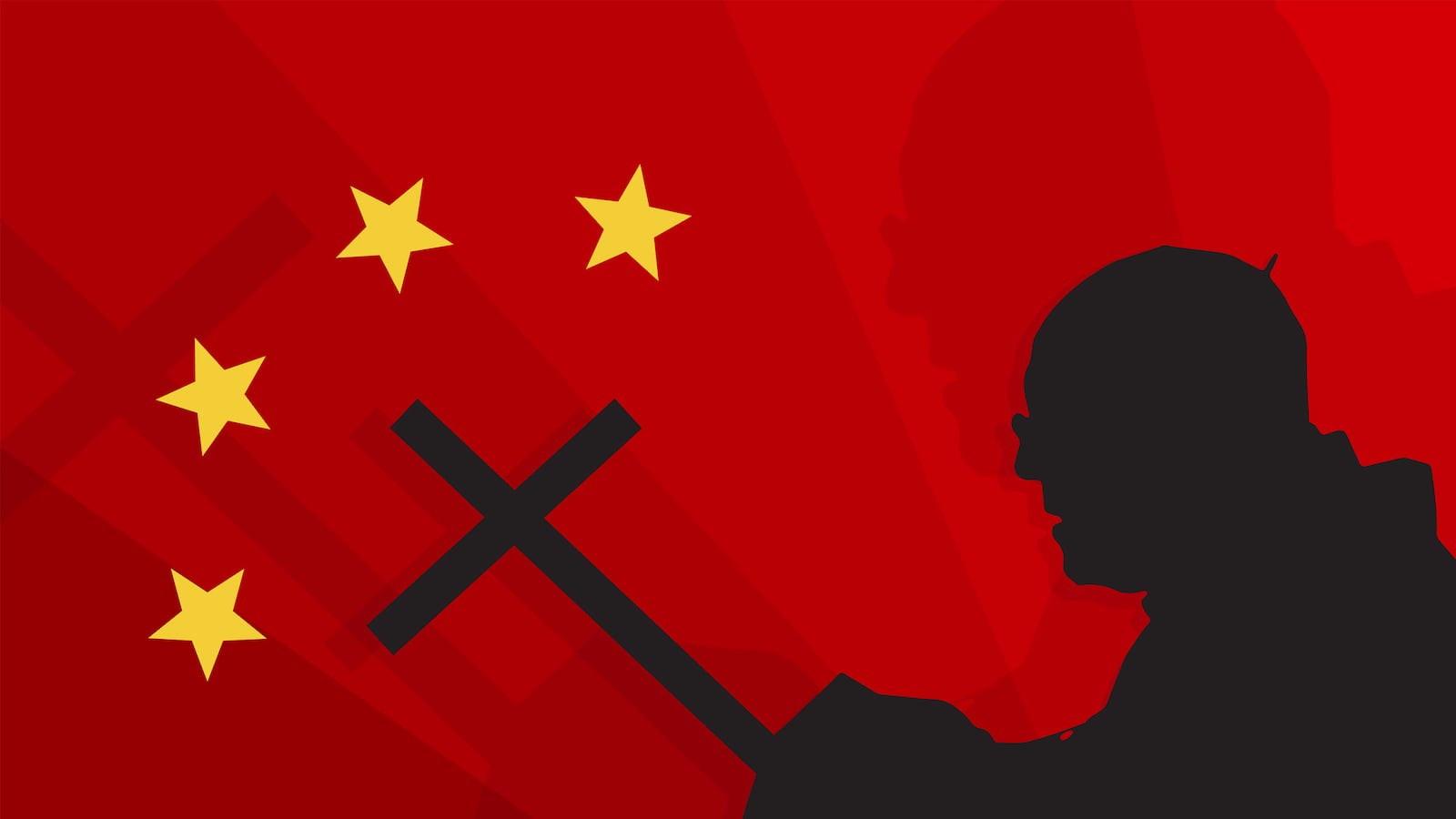EDITOR'S NOTE: On Thursday, the Vatican officially released the Pope's encyclical on climate change, Laudato Si. In it, not only did he call for sweeping changes in how humanity cares for the planet, but he also harshly criticized the whole system of capitalism that he says is leading humanity to ecological catastrophe. He specifically criticized rich countries for exploiting the resources of the poor. "Access to ownership of goods and resources for meeting vital needs is inhibited by a system of commercial relations and ownership which is structurally perverse," the encyclical stated. "The developed countries ought to help pay this debt by significantly limiting their consumption of non-renewable energy and by assisting poorer countries to support policies and programmes of sustainable development."
With that in mind, The Daily Beast is reposting this story from May asking the question, is Pope Francis a communist?
VATICAN CITY — Sometimes the Pope Francis effect is loud and clear, like when self-proclaimed atheist Raul Castro said he might just start praying again after meeting with the pontiff last weekend. Other times, it’s more subtle, like Tuesday, when the Vatican ushered in from the cold Gustavo Gutierrez, the so-called father of the controversial Liberation Theology movement, to address the press about ministering to the poor.
Gutierrez has never had an easy place in Rome, and Tuesday’s press conference was as much a debut as anything, notwithstanding the fact that the Dominican priest from Peru is a spry 85. Liberation Theology bloomed in the 1950s and ‘60s as a Latin American movement that focused not only on ministering to the poor, but on reinterpreting Catholic scripture through their eyes and experiences, all while fighting the causes of poverty—in some cases condoning the use of arms to do so. The movement was centered on “base communities” throughout Latin America that operated independently of the church, yet were very Catholic.
Liberation Theology was a thorn in the side of Joseph Ratzinger when he was head of the Congregation for the Doctrine of the Faith before becoming Pope Benedict XVI. He once called the movement “a fundamental threat to the faith of the church.” Under Pope John Paul II, Liberation Theology and its supporters were kept under constant surveillance for what was perceived to be a Marxist-inspired movement. There are even rumors that it was a KGB plot. Gutierrez was never officially censured by Rome, but many of his closest allies were.
Under Pope Francis, Liberation Theology seems to be enjoying a reincarnation into something that is more palatable and fits under the Francis mantra to make the institution a poor church for the poor. The current head of the Congregation for the Doctrine of the Faith, Gerhard Ludwig Mueller, who wrote a book called Poor for the Poor: The Mission of the Church in which Pope Francis wrote the preface and Gutierrez wrote several chapters, is a fan. Ahead of the book’s release last year, he said, “This theology is not an ideology. It is based on a real theology, based on the word of God. Through his word we can be saved. Only God and his words can save mankind.”
Gutierrez was also asked to write an article in the Vatican’s newspaper, L’Osservatore Romano, last weekend, excerpting one of the very books he wrote that Vatican once poured scorn over. “For centuries, the poor have been close to us, they lived more or less near us, in the city or in the countryside,” he wrote. “However, today we have realized that poverty goes very much beyond our gaze, it is a global phenomenon, if not universal. The majority of human beings in the world live in the condition we call poverty.”
Tuesday’s press event was meant to kick off the Caritas International general assembly, at which Gutierrez is a keynote speaker. A round little man with a huge personality, Gutierrez tried at first to focus on the work of the Catholic Church’s charity arm, touting themes like “there is no charity without justice.” “People love to speak about being post-socialist, post-capitalist-, post-industrialist,” he said. “People today love to be ‘post.’ But we are not living post-poverty.”
But after the assembly’s goals were outlined, Gutierrez was asked pointed questions about whether his very presence at such an event amounted to a rehabilitation. He said he wouldn’t describe it as a true rehabilitation, because that implies that it needed to be rehabilitated. “It was never condemned,” he said of Liberation Theology. “After all that was written in the media, the fact was that it was always a just dialogue. It was critical, that is true. But I believe the central theme of Liberation Theology was always to help the poor.”
He added that Pope Francis has opened the door for many who subscribe to movement. “I think that at this moment, the climate toward Liberation Theology is different,” he said, underscoring that, like Pope Francis always says, the important focus should be to preach to the people, and that theology comes after. “Theology is a second act,” he said. “We have always said that, it is not secondary, but it is second after ministering to the people.”
When asked pointedly if he still subscribed to some of the more impassioned writings he supported 30 years ago that raised alarm in Rome, Gutierrez told a story about how he was asked the same question by a journalist who had been married for 20 years. He said he asked her, “Do you still love your spouse?” to which she replied yes. Then he asked her, “Would you still write the same kind of love letter to your spouse 20 years later?” That, he says, is how he feels about his own beliefs in the essence of Liberation Theology—they are still as strong, but time and wisdom have dampened some of the passion.






